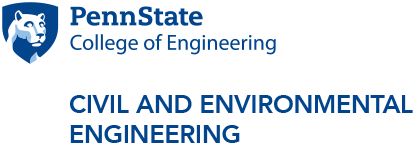Women Advancing River Research: Kamini Singha
The recording for this seminar is now available.
Abstract: Groundwater-surface water exchange is important to increasing the residence time of surface water in a river system, which is needed for thermal buffering of surface waters as well as nutrient processing and metals uptake within biogeochemically active sediment. Here, we look at stream-aquifer connectivity within a critical zone approach, where we identify controls of physical hydrology on stream biogeochemistry. Specifically, we explore if and when the hyporheic zone mediates high concentrations of trace metal(loid)s exported from abandoned mine wastes and acid- rock drainage by investigating the relations between streamflow, groundwater-stream connectivity, and subsurface metal(loid) concentrations in two stream reaches within the Bonita Peak Mining District, a U.S. Environmental Protection Agency Superfund site located near Silverton, Colorado, USA. Using a combination of salt-tracer injection tests, electrical geophysics, transient-storage modeling, and geochemical sampling of the shallow streambed (< 0.7 m), we present two contrasting conceptual models for subsurface metal(loid) behavior in hyporheic zones, including (1) well-connected systems characterized by strong hyporheic mixing of infiltrating stream water and upwelling groundwater and (2) poorly connected systems delineated by physical barriers that limit hyporheic mixing. Stream concentration-discharge relations exhibit a clear link between geochemical processes occurring within the hyporheic zone of the well-connected system and export of particulate Al, Cu, Fe, and Mn, while in the disconnected system hyporheic zone processes did not have a notable influence on metal concentration-discharge trends.
Biography: Kamini Singha is a professor in the Department of Geology & Geological Engineering and the associate dean of Earth and Society Programs at the Colorado School of Mines. Her research interests are focused in hydrogeology and environmental geophysics. Singha is an award-winning teacher, a recipient of a U.S. National Science Foundation CAREER Award and the Early Career Award from the Society of Environmental and Engineering Geophysics, a Geological Society of America Fellow, and a former Fulbright Scholar. She served as the U.S. National Groundwater Association's Darcy Lecturer in 2017. She earned her bachelor's degree in geophysics from the University of Connecticut and her doctoral degree in hydrogeology from Stanford University.
Additional Information:
Lecture begins at 11 a.m. U.S. Eastern time (New York) and will be followed by a question and answer session.
Event Contact: Tim Schley




